We’re less than one week away from the Emmys. For the last time, Jorge takes a look into the scripts for episodes of major contenders before the ceremony.
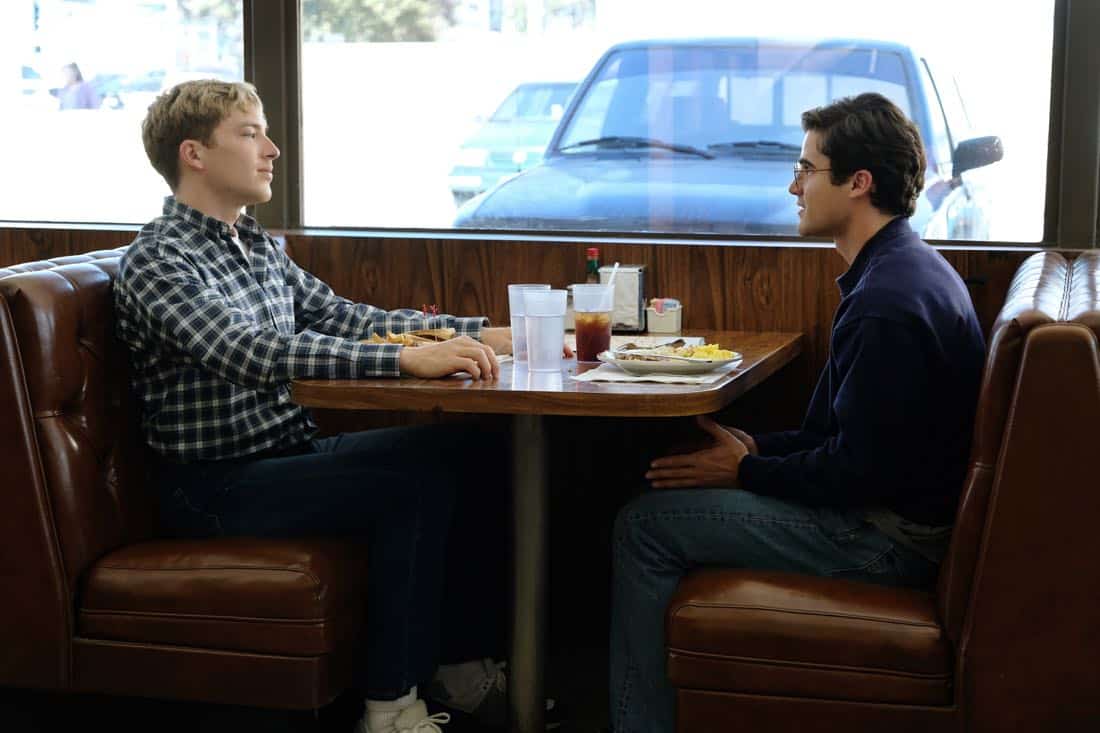
The Assassination of Gianni Versace was a big departure from the first season of American Crime Story in many ways. First of all, it is told in reverse. It opens with the titular murder of the fashion designer, and goes backwards into the other three murders that Andrew Cunanan committed, and traces back his childhood and upbringing. The show is less a legal procedural like O.J. and more a psychological dive into the mind of a broken man, and the emotional ramifications of his actions. The two seasons have completely different visual and narrative styles. They are written by different people. They are linked only by the series title after the colon.
Writer Tim Robb Smith uses Andrew’s story to make a larger comment about, among many other things, fame, self-hatred and the trauma of the closet...
He uses a backwards structure to deconstruct myths and humanize monsters. Just as the series looks and feels different than its previous iteration (more poetic, less plot-driven), the script does as well. As I’ve discussed previously in this column, action lines and descriptions in a script are a chance for writers to really tap into their inner novelist. Smith really takes that chance to further explore the themes of the show.
The Assassination of Gianni Versace: American Crime Story
“House by the Lake”
Season 2, Episode 4
Written by: Tim Robb Smith
[You can read the entire script here.]
Previously in this Emmy wave of Blueprints installments we've looked at pilots but a pilot does not a series make. The most striking moments of a series tend to happen further on (and should; otherwise the show is not doing so well).
“House by the Lake”, the fourth episode of the season, focuses on Andrew and architect David Madson, the object of his unfaltering love, and later on, his rage. Through the episode, Andrew forces David to go on a cross country road trip with him, which culminates tragically in, well, a house by a lake. We get a deeper background on David himself, and his own upbringing in a rural environment, and his struggles growing up gay.
The final moments of the episode detail the final moments in David’s life. Andrew has found out his attempts to escape, and shoots him. The last three pages of the script are nothing but descriptions. No dialogue. Just wordless imagery unfolding through character moments, memories, and blocking. Sentences that reveal emotions:
“David has seen that look before, when Andrew attacked Jeff -- so he knows.”
“We’re desperately hoping he’ll get away..."
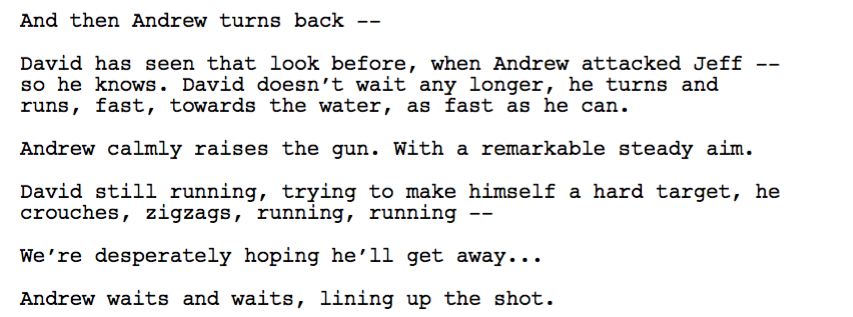
As Davis runs away from Andrew and tries to avoid his shot, he runs into a shed. As he goes inside, he is not on the run anymore. He is by another house by another lake. “This is now the simple hunting shack from his childhood. We’ve switched locations in David’s mind, merging the two.” His dad is there, and hands him a beverage. David takes it; he’s welcomed and accepted.
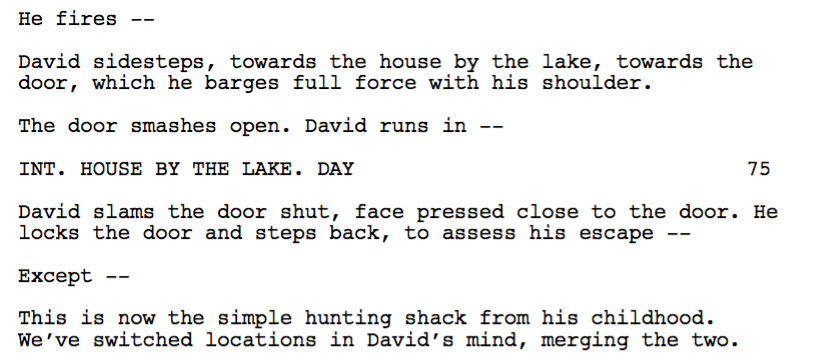
***

***
But he is not really there. That’s not how it ends for him. “In reality, the bullet impacted in David’s back, between the shoulder blades, and he’s in process of tumbling to the ground, face first.” He lands on the grass. He looks up at the clouds (“the beautiful clouds”). He remembers his carefree childhood, when he would run in a similar field. It’s the closure of tragic emotional circle for David.
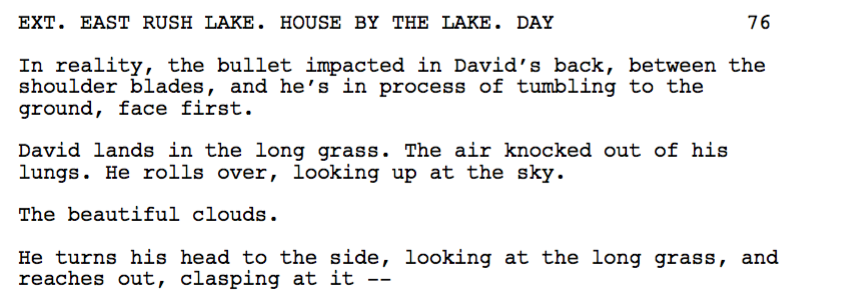
The episode does not end with David, but Andrew’s delusional perception of what he just did. “He sits beside the body of David, staring at the water. He puts the gun down in the grass. He lays beside David’s body and rests an arm around him, as though they were a couple, sleeping together.” He falls asleep. He wakes up. He stands up and leaves David’s body behind. Just like that. He leaves behind a baggage that, as we have seen in previous episodes, will slowly catch up with him.
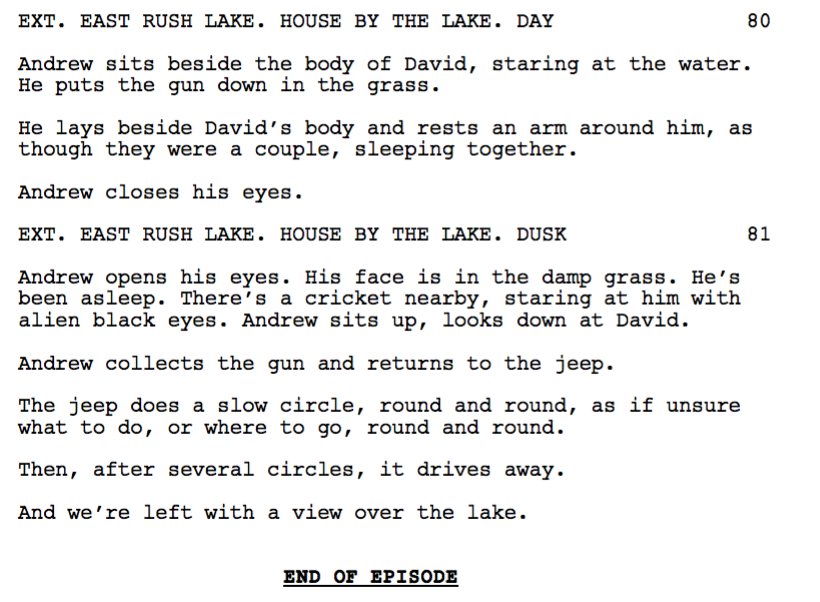
David is forgotten in the house by the lake. But his memory prevails through the remaining episodes. The show makes a point by not making him just another statistic in a serial victim’s bio. He’s part of a larger narrative. He’s part of larger story. and that’s what The Assassination of Gianni Versace is about, after all. Not about the murder of one man, or about the man that committed it. It’s about everything around it. It’s about the culture that allowed it to happen. It’s not the character dialogue, but the unsaid action lines and descriptions.